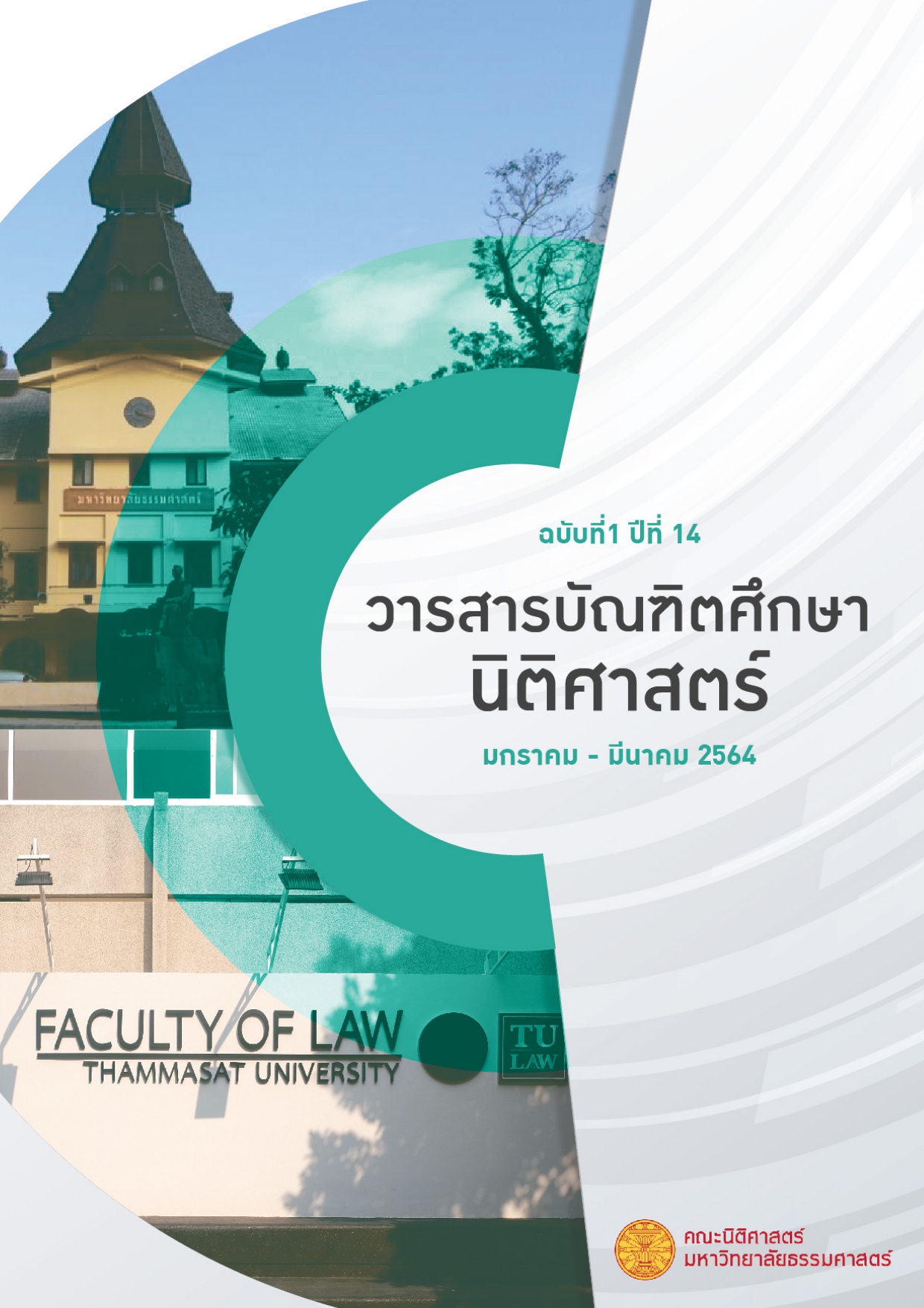OBLIGATION TO CO-OPERATE
Keywords:
obligation to co-operate, secondary duty, good faith, default of the creditorAbstract
This article examines the problems on the absence of the principle of obligation to co-operate in Thai legal system which results in the problems that the aggrieved contractual party from non-co-operation does not have right to claim damages, terminate the contract and bring the case to the court to obtain a specific performance. Although Thai Civil and Commercial Code leaves clues on the principle of obligation to co-operate in the provisions including principle of good faith and the default of the creditor, they do not clearly reflect the principle and the application of these provisions may not remedy the aggrieved contractual party from non-co-operation in all circumstances.
The comparative study of Thai, German and model laws including Draft Common Frame of Reference (DCFR) in this article shows that foreign legal systems have the systematic and explicit principle of obligation and duty to co-operate. German legal system has the principle of the duty to co-operate which is a kind of secondary duty that the contractual party who does not perform this duty may have a liability for damages and aggrieved party may have a right to terminate the contract. Moreover, DCFR also has the principle of obligation to co-operate in some articles and non-performance in this obligation results in legal consequences as prescribed by DCFR. For example, non-performance party could be forced to specific performance, be liable for damages and aggrieved party may have a right to terminate the contract. In addition, obligation and duty to co-operate in foreign legal systems originates from the interpretation of the principle of good faith, but this obligation and duty contain intense details which could be clearly separated from the principle of good faith. Therefore, this article proposal is to amend Thai Civil and Commercial Code to have new specific provision relating to the principle of obligation to co-operate. This amendment results in the recognition of systematic and explicit obligation to co-operate separated from other main contractual obligations in Thai legal system and leads to legal consequences that aggrieved contractual party from non-co-operation shall have a right to specific performance, damages and terminate the contract.
Downloads
Published
Issue
Section
License
บทความหรือข้อความคิดเห็นใด ๆ ที่ปรากฏในวารสารบัณฑิตศึกษานิติศาสตร์เป็นความรับผิดชอบของผู้เขียนบทความโดยเฉพาะ คณะนิติศาสตร์ มหาวิทยาลัยธรรมศาสตร์ และกองบรรณาธิการไม่จำเป็นต้องเห็นด้วย



